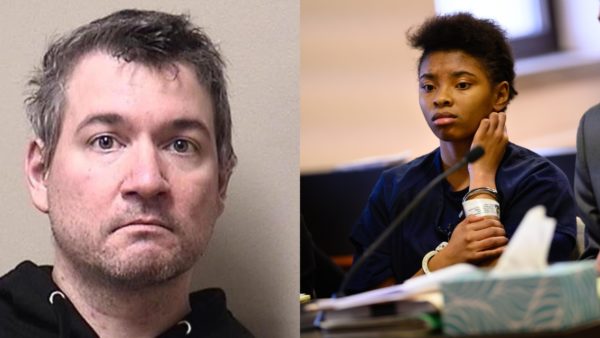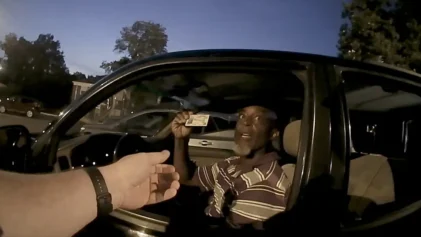A woman accused of killing a Wisconsin man she said trafficked her as a teenager may get to employ a new defense strategy in her pending murder case.
In June 2018, Chrystul Kizer was charged with shooting and killing 34-year-old Randall Volar III, then setting his home on fire and escaping in Volar’s car. At 17, Kizer was charged with first-degree intentional homicide, arson and auto theft, reported Kenosha News.

On Wednesday, June 9, the state District II Court of Appeals ruled Kizer can access an affirmative defense law, meaning she may be able to argue that her actions were the “direct result” of human trafficking.
Kizer’s defense attorneys previously sought to use an affirmative defense, but Kenosha County Circuit Court Judge David Wilk found that the defense was not “available” to Kizer. In March 2020, the defense appealed.
The state argued to the appellate court that Kizer was “not a trafficking victim” and “that even if she were,” using the affirmative defense in a homicide case would only lessen a first-degree homicide to a second-degree homicide. The appellate court contended that the affirmative defense would be “a complete defense” to the homicide charge, and would not just diminish it to a lower one, reported Kenosha News.
However, the court decision states that Kizer only may be able to use the defense, not that she can.
That will hinge on whether the defense attorneys are able to present “some evidence” that she was a trafficking victim and that the shooting was the direct outcome of that, according to the court decision.
Prosecutors originally depicted Kizer as a cold-blooded killer, claiming that she premeditated the murder and admitted it on social media. At the time, defense attorneys found out that Kenosha Police were investigating Volar for child sex trafficking and that Kizer was one of his “underage girls.”
Kenosha County District Attorney Michael Graveley argued in court that while Volar had been paying underage girls for sex, Kizer’s motivation for committing homicide was primarily to steal Volar’s vehicle and was not directly resulting from the trafficking, according to Kenosha News.
Graveley wrote in a 2019 Facebook post that Kizer “never indicated that she was trafficked by Volar,” and that the two met “on backpage and he paid her for sex,” reported TMJ4 News.
Kizer told investigators “she could not leave without being blocked and she believed that Mr. Volar might jump out at her so she shot him,” according to the criminal complaint.
After spending almost two years in the Kenosha County Jail, Kizer was bailed out when a “Chicago-based aid group” posted her $400,000 bond last year.
Kizer’s case bears resemblance to that of Cyntoia Brown, who served 15 years out of a life sentence for the murder of a man when she was 16. She was granted clemency and released from a Nashville prison in August 2019, reports NPR.
Brown was convicted of aggravated robbery and first-degree murder in 2006 after going home with, and killing, 43-year-old real estate agent Johnny Allen, who picked her up for sex in Nashville.
She said she retrieved a pistol from her purse and shot Allen because she assumed he had reached for a gun, according to police.
Afterward, Brown fled the scene in Allen’s pickup truck after taking Allen’s guns and money.
Prosecutors argued that Brown shot Allen in order to steal from him, however, maintained she killed him in self-defense. She was summarily convicted and sentenced to life in prison for the murder.
In the intervening years, many notable individuals have fought for Brown’s release, including lawyers, and celebrities such as Rihanna and Kim Kardashian. Her case also prompted the introduction of state legislation designed to protect victims of sex trafficking who are minors, according to NPR.


